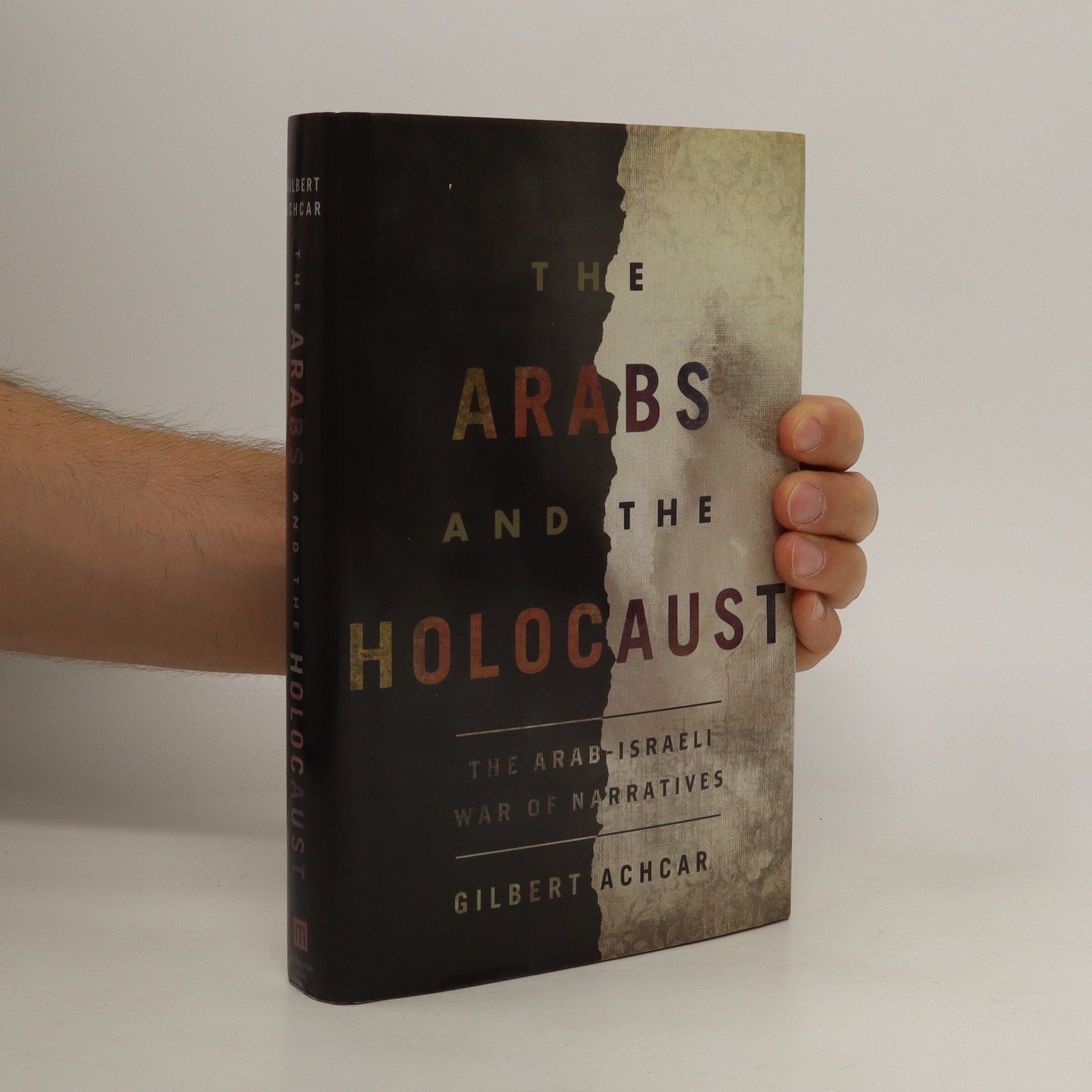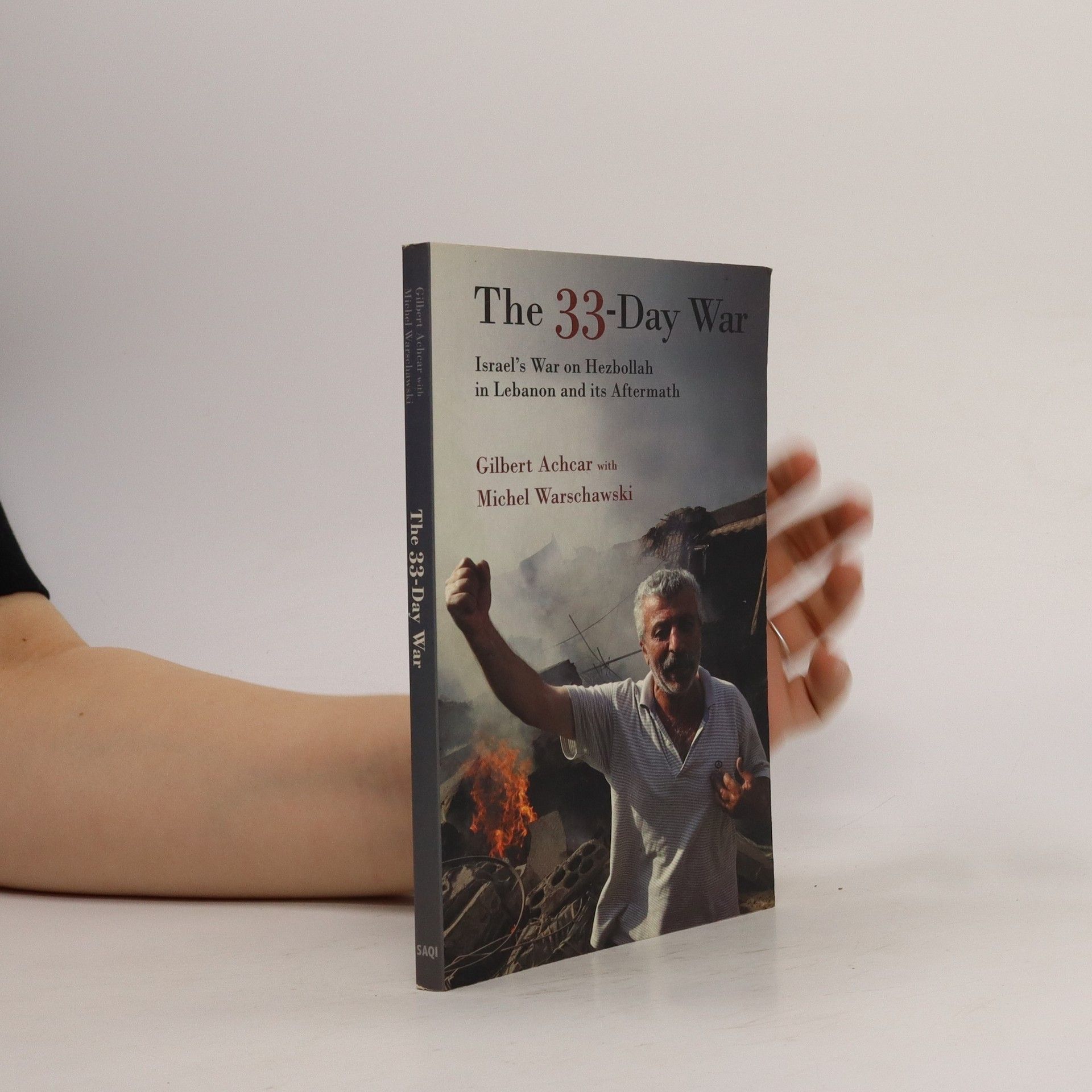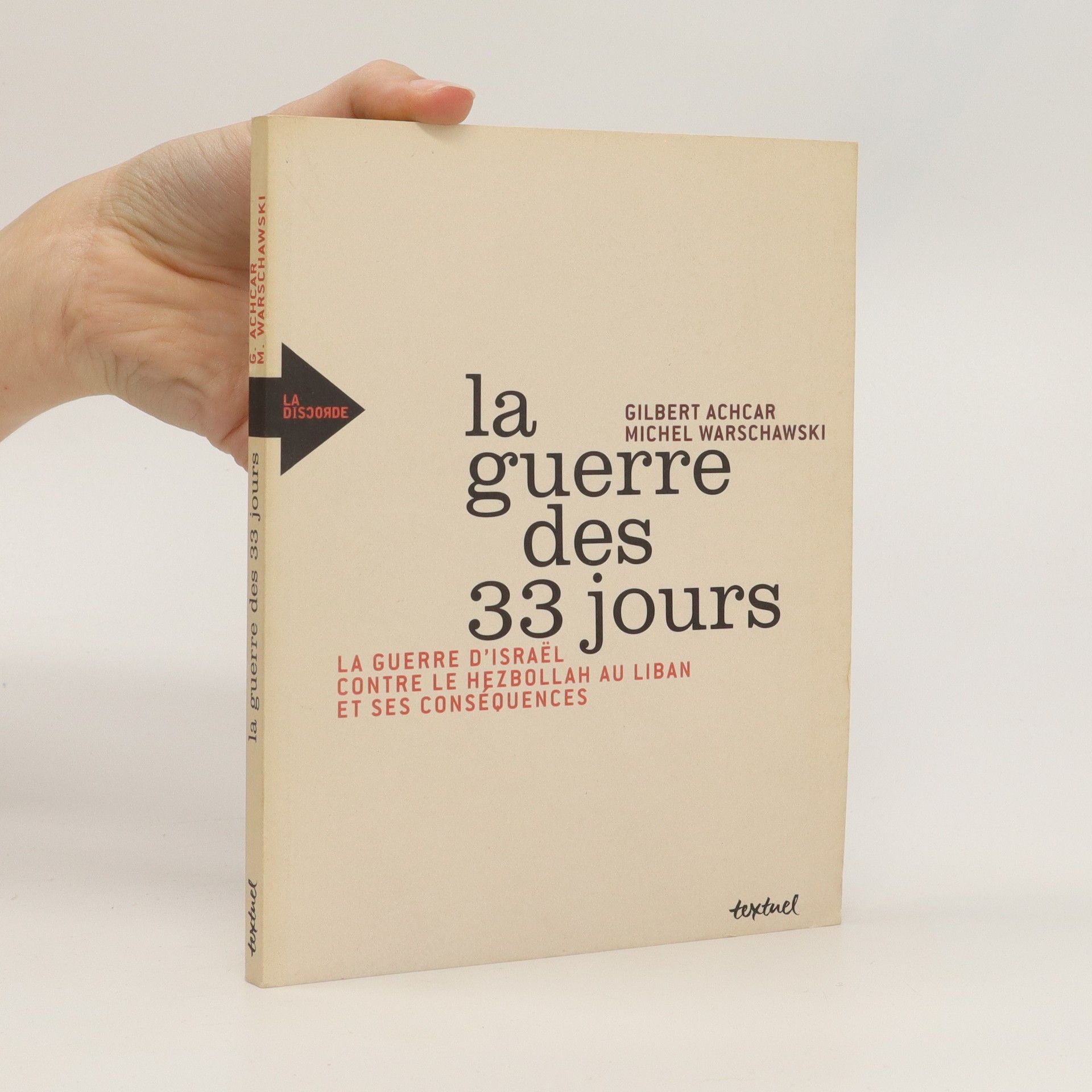In this sequel to his landmark exploration of the Arab uprisings, The People Want, Gilbert Achcar assesses the present stage of the revolutionary process and its possible outcomes.
Gilbert Achcar Boeken
Deze Libanese auteur duikt in de ingewikkelde dynamiek tussen Noord en Zuid op wereldschaal. Zijn werk onderzoekt kritisch de impact van globalisering en buitenlands beleid, met name op het Midden-Oosten en Noord-Afrika. Met een focus op sociale rechtvaardigheid en internationale betrekkingen biedt hij diepgaande inzichten in de krachten die onze hedendaagse wereld vormgeven. Zijn analytische benadering biedt lezers een rijk en tot nadenken stemmend perspectief.






The essential guide to understanding the roots and continuing significance of the Arab uprisings. This edition features a new preface and postscript drawing a balance sheet of the regional uprising's first decade.
This is a timely, incisive and richly informed assessment of the recent Israel-Lebanon conflict written by noted experts from both countries: Lebanese Gilbert Achcar and Israeli Michel Warschawski. The authors describe the popular basis of Hezbollah in Lebanon among the Shiites, and its relation to the country’s other religious communities and political forces. They analyze the regional roles of Syria, Iran and Hamas as well as the politics of the US and Europe. They then dissect the strategic and political background behind recent actions taken by Israel; the impact of Israel’s incursion into Lebanon and its effects on Lebanon’s population; and the consequences of the war on Israeli polity and society. Gilbert Achcar, who grew up in Beirut, is Professor at the School of Oriental and African Studies, University of London. His many books include The Clash of Barbarisms: The Making of the New World Disorder, published in thirteen languages, and Perilous Power: The Middle East and U.S. Foreign Policy, a book of dialogues with Noam Chomsky. Michel Warschawski, a veteran journalist and peace activist, founded the Alternative Information Center in Jerusalem, a Palestinian-Israeli news organization that disseminates information, research and political analysis on Palestinian and Israeli societies.
The Arabs and the holocaust: the Arab-Israeli war of narratives
- 386bladzijden
- 14 uur lezen
An unprecedented and judicious examination of what the Holocaust means—and doesn't mean—in the Arab world, one of the most explosive subjects of our time There is no more inflammatory topic than the Arabs and the Holocaust—the phrase alone can occasion outrage. The terrain is dense with ugly claims and counterclaims: one side is charged with Holocaust denial, the other with exploiting a tragedy while denying the tragedies of others. In this pathbreaking book, political scientist Gilbert Achcar explores these conflicting narratives and considers their role in today's Middle East dispute. He analyzes the various Arab responses to Nazism, from the earliest intimations of the genocide, through the creation of Israel and the destruction of Palestine and up to our own time, critically assessing the political and historical context for these responses. Finally, he challenges distortions of the historical record, while making no concessions to anti-Semitism or Holocaust denial. Valid criticism of the other, Achcar insists, must go hand in hand with criticism of oneself. Drawing on previously unseen sources in multiple languages, Achcar offers a unique mapping of the Arab world, in the process defusing an international propaganda war that has become a major stumbling block in the path of Arab-Western understanding.
Israel's War on Gaza <> Paperback <> GilbertAchcar <> ResistanceBooks
One of the world's most seasoned international relations experts argues that the Cold War did not end with the collapse of the USSR - and that the US, Russia and China today are locked in a spiral of hostilities ongoing since the 1990's.
s/t: Dialogues on Terror, Democracy, War & JusticeThe volatile Middle East is the site of vast resources, profound passions, frequent crises, and long-standing conflicts, as well as a major source of international tensions and a key site of direct U.S. intervention. Two of the most astute analysts of this part of the world are Noam Chomsky, the preeminent critic of U.S. foreign policy, and Gilbert Achcar, a leading specialist of the Middle East who lived in that region for many years. In their new book, Chomsky and Achcar bring a keen understanding of the internal dynamics of the Middle East and of the role of the United States, taking up all the key questions of interest to concerned citizens, including such topics as terrorism, fundamentalism, conspiracies, oil, democracy, self-determination, anti-Semitism, and anti-Arab racism, as well as the war in Afghanistan, the invasion and occupation of Iraq, the Israeli-Palestinian conflict, and the sources of U.S. foreign policy. This book provides the best readable introduction for all who wish to understand the complex issues related to the Middle East from a perspective dedicated to peace and justice.
The volatile Middle East is a site of vast resources, profound passions, frequent crises, and long-standing conflicts, as well as a major source of international tensions and a key site of direct US intervention. Two of the most astute analysts of this part of the world are Noam Chomsky, the pre-eminent critic of US foreign policy, and Gilbert Achcar, a leading specialist of the Middle East who lived in that region for many years. In their new book, Chomsky and Achcar bring a keen understanding of the internal dynamics of the Middle East and of the role of the United States, taking up all the key questions of interest to concerned citizens, including such topics as terrorism, fundamentalism, conspiracies, oil, democracy and anti-Arab racism, as well as the war in Afghanistan, the invasion and occupation of Iraq, the Israeli-Palestinian conflict, and the sources of US foreign policy. Timely, erudite and incisive, Perilous Power provides the best readable introduction for all who wish to understand the complex issues related to the Middle East from a perspective dedicated to peace and justice.
Prace moje w tej książce dotyczą różnych spraw i powstały w różnych czasach – pierwsza, najstarsza, 40 lat temu, ostatnia w 2021 r. Tematyka to w większości świat arabski, do którego sam należę z powodu swojego libańskiego pochodzenia i który jest przedmiotem mojej stałej osobistej i intelektualnej uwagi – także ze względu na moją specjalizację akademicką. W zbiorze tym jednak są również prace z zakresu moich szerszych zainteresowań: artykuły o nędzy Trzeciego Świata w czasach COVID-19 oraz o tym, co dziś znaczy antyimperializm, a więc internacjonalizm. Czerwona nić łączy te kilkudziesięcioletnie refleksje: jest to wątek etyki rewolucyjnej, którą się kieruję, a polega ona na odrzuceniu wszelkich form ucisku i wyzysku oraz na równie silnym przywiązaniu do wolności i równości – etyki, którą najlepiej reprezentuje w moich oczach ta wielka polska osobowość, jaką była Róża Luksemburg. Wiedziała, jak połączyć marksizm jako środek poznania z niepodzielnymi wartościami indywidualnej i zbiorowej emancypacji ludzkości jako przewodnikiem w działaniu.
Cet ouvrage présente une analyse de la guerre des 33 Jours et de ses conséquences nourrie d'une observation minutieuse du contexte politique et stratégique et d'une mise en perspective historique. Loin d'obliger le Hezbollah à déposer les armes, elle a transformé l'organisation intégriste islamiste chiite en ennemi le plus prestigieux d'Israël, métamorphosant le chef du Hezbollah, Hassan Nasrallah, en héros arabe le plus populaire depuis Nasser. Au fil du temps, le Liban a confirmé sa position de Vietnam d'Israël: la dernière guerre a engendré la crise la plus grave qu'Israël ait eu à affronter depuis la guerre du kippour en 1973. Les auteurs appartiennent à ces deux pays ennemis que, sont Israël et le Liban. Ils sont liés depuis plus de trente ans par une amitié qui est d'autant plus forte qu'elle transcende les frontières les plus brûlantes.


